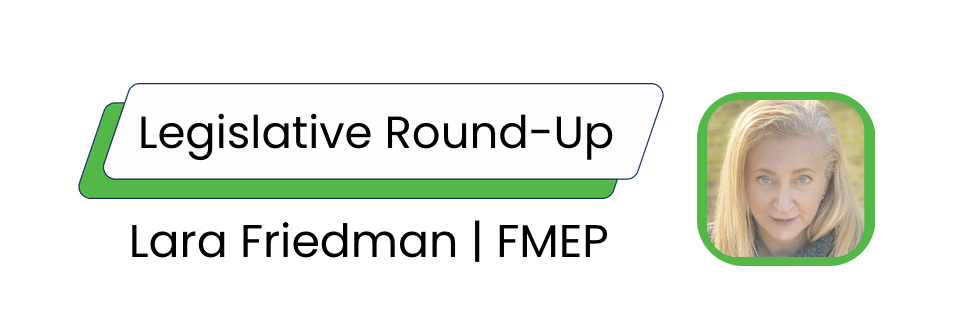 | | | | | | | |  | | | | | Q. Until recently, you spoke of no fewer than seven active war-fronts. Now all are quiet? A. The ceasefire and the hostage/prisoner exchange with Gaza-based Hamas have indeed, at least temporarily, silenced almost all fronts. The Hezbollah/Iran front was already quiescent. Now the Yemeni Houthis and Iraqi pro-Iran militias have also ceased firing missiles at Israel in deference to the ceasefire in Gaza and Lebanon. Q. You said “almost” all fronts? A. The IDF has switched its focus of attention to the West Bank, and particularly the northern West Bank towns of Jenin and Tulkarm. There in recent months militant groups, in part inspired by Hamas and in part in response to settler-extremist territorial provocations, have been targeting Israel and Israelis. IDF and Shin Bet intelligence assess that the cumulative release, under ceasefire provisions, of hundreds of Palestinian terrorists from Israeli jails, many of them to homes in the West Bank, will further augment anti-Israel incitement there. Hence the IDF West Bank offensive is understood to be punitive, preventive and deterrent. Q. Sounds familiar. Déjà vu? A. That’s understatement. Way back in the 1930s, during what was known as the Arab Revolt, British mandatory forces fought a radical Palestinian uprising that centered on the northern West Bank ‘triangle’ of Nablus, Tulkarm and Jenin. Then (by the RAF), as now (by the IAF), militant strongholds were bombed from the air, meaning resorting to bombing territory ostensibly under one’s own strategic control in view of the tenacity of the enemy. The northern triangle Arab towns also led the Palestinian cause in the course of two intifadas in the 1990s and early 2000s. One key difference today is that the IDF is working in tandem with Palestinian Authority forces that are as concerned as Israel about Hamas-inspired militancy in the West Bank. | | | | Yossi Alpher is an independent security analyst. He is the former director of the Jaffee Center for Strategic Studies at Tel Aviv University, a former senior official with the Mossad, and a former IDF intelligence officer. Views and positions expressed here are those of the writer, and do not necessarily represent NJN's views and policy positions. | |  | 1. Bills, Resolutions
2. Letters
3. Hearings
4. Selected Members on the Record
5. Selected Media & Press releases/Statements 1. Bills & Resolutions (TARGETING THE ICC) Today (1/3/25) at noon ET, the 119th Congress opens for business. In terms of legislation, one of the first items of business in the House (following the swearing in of members and election of the Speaker – the latter task looking, as of this writing, as if it may involve some drama and some time), the House will vote on a resolution, H. Res. XXX, “Adopting the Rules of the House of Representatives for the One Hundred Nineteenth Congress, and for other purposes.” sponsored by House Majority Leader Scalise (R-LA). Notably, H. Res. XXX includes a list of resolutions and bills [all of which were previously introduced in the 118th Congress that will be immediately brought to the House floor for a vote, with no amendments permitted and allowing only one hour for debate (note: H. Res. XXX leaves the bill numbers unspecified, since they cannot be re-introduced until the 119th Congress is formally opened). That list includes, “The bill (H.R. ___) to impose sanctions with respect to the International Criminal Court engaged in any effort to investigate, arrest, detain, or prosecute any protected person of the United States and its allies.” Also see: -
Massie (R-KY) 1/1/25: X-post – “The United States is a sovereign country, so I don’t assign any credibility to decisions of the International Criminal Court. But how did a bill to protect Netanyahu make it into the House rules package to be voted on immediately after the Speaker vote? Where are our priorities?!“ -
Common Dreams 1/1/25: House GOP Tries to Protect Netanyahu From ICC With Rules Package -
Haaretz 1/2/25: What Do Netanyahu and the ICC Have to Do With the Vote on U.S. House Speaker? [“The latest GOP clashes portend just how divisive foreign policy will be among the Republican Party, as isolationists and neoconservatives battle to define the incoming Trump administration’s goals“] -
Jewish Insider 1/3/25: Excerpt from Daily Kickoff – “Sen. Lindsey Graham (R-SC), who has led the Senate effort to sanction the court, would be supportive of either congressional or executive action on the issue, a source familiar with the matter told JI. Still, he plans to move ahead with reintroducing the legislation again.” | | | | | | | | Lara Friedman is the President of the Foundation for Middle East Peace (FMEP). With more than 25 years working in the Middle East foreign policy arena, Lara is a leading authority on U.S. foreign policy in the Middle East, with particular expertise on the Israeli-Arab conflict, Israeli settlements, Jerusalem, and the role of the U.S. Congress. Views and positions expressed here are those of the writer, and do not necessarily represent NJN's views and policy positions. | | | | | | | | | | Americans for Peace Now, Inc.
1320 19th St, N.W. Suite 400 | Washington, District of Columbia 20036-1635
6176862265 | [email protected] | | | | | | | | | |